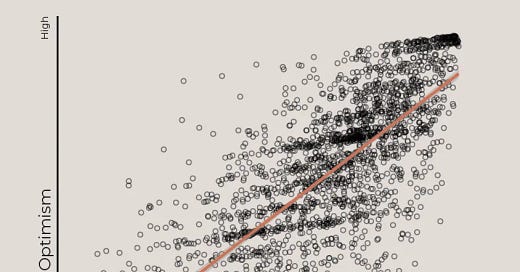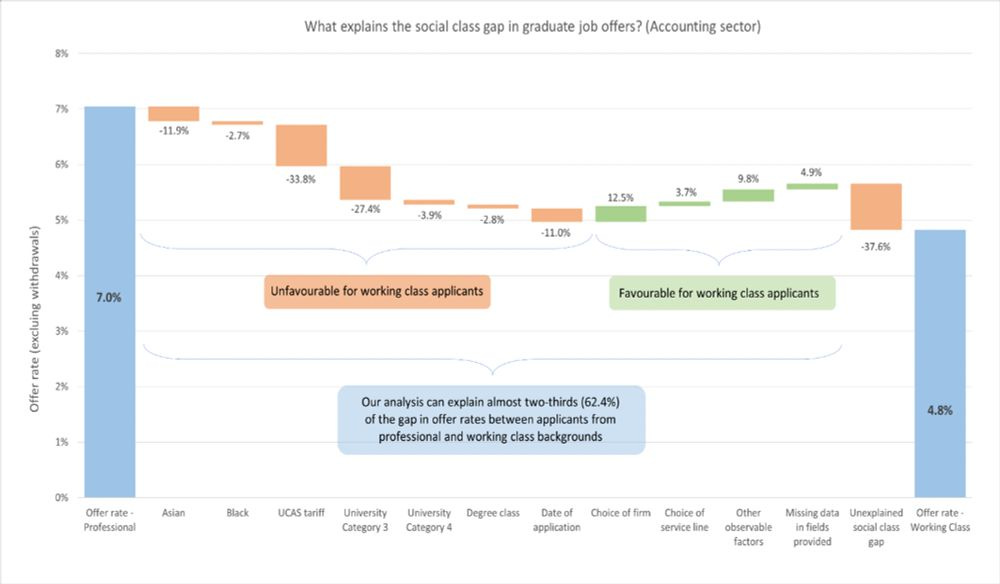What Everyone Else Is Thinking
Haruki Murakami | Dynamite Philosophy | Risk and Uncertainty | Boring Small Businesses | Working Class Heroes | Creativity and Optimism | US Infrastructure
If you only read the books everyone else is reading, you can only think what everyone else is thinking.
| Haruki Murakami
I’ve been involved, in recent weeks, in a massive cleaning out of subscriptions (not necessarily the paid kind) from all sorts of publications, organizations, and writers. I had too much coming in, and I lack good ways to winnow it out.
That’s because I believe in Amber Naslund’s ‘Dynamite Philosophy’ :
The Dynamite Philosophy: Blow Things Up
I tweeted earlier this week that I blew up my to-do list completely, and started over. Why? I realized that things weren’t organized in the way I needed to review them. So, I broke it all down, and started fresh.
If you haven’t answered the email lingering in your inbox, either do so, or delete it. Someday never comes.
If you find you aren’t using your to-do list, it’s probably not fitting the way you think. Nuke it. Start over.
If you haven’t read all the posts in your reader, Mark All As Read and walk away.
Once you’ve selected tools, if they don’t work, ditch them and try something else. If one method of tackling projects doesn’t work, blow it up and try something else. If you don’t need a tool anymore, get rid of it. This isn’t a forever relationship. Your organizational style and attack on projects needs to evolve with you. If I’d stuck to the work style I used five years ago, it would be crippling me today.
Lastly, realize that no system is bulletproof or perfect. Do the best you can. Tweak it, refine it, but stop obsessing over organization. The system isn’t the goal. You’re trying to get your stuff done. Over-engineering kills action every time.
| Amber Naslund, Project Management and the Dynamite Philosophy (2010)
This willingness to ‘blow things up’ is the starting point of my unorganized approach to being organized. As I have pointed out elsewhere, I am a ‘scruffy’: the term that is used by people who study organization call people like me.
The switch to Bluesky and Substack away from Twitter, Medium, and an overload of email-based newsletters has been a massive blowing-things-up event. I am finding more catching my eye in the Bluesky and Substack streams than in email, so I spend less time reading emails and more time in the streams, surfing the flow.
A Lightning Round
I confess that I’ve been less reliable in posting here recently. I’ve been involved in a massive project — Portfolio: a comprehensive notetaking system for Obsidian — that I’ve been writing about on a different subject, Workings: the tools we use to think, write, and remember. Meanwhile, I am also hatching another plan that could make a difference on workfutures.io. More to follow.
I still love you, though, and to demonstrate that, today is dedicated to short snippets about things that have recently caught my attention.
Risk and Uncertainty
I came across Don't wait until it's obvious. by Vaughn Tan, which has a convenient tl;dr at the outset:
tl;dr: Most strategic mistakes don’t come from just bad planning. They come from misdiagnosing the types of unknowns your strategy is set up to deal with. And the consequences of misdiagnosis are rarely obvious — until it's too late.
A few paragraphs later, he provides what could serve as a subtitle:
Risk and uncertainty are not the same thing, and you set yourself up for failure if you mistake one for the other.
I plan a deeper analysis, connecting with the work of
…
Boring Small Businesses
I found Young Professionals Are Increasingly Turning to Boring Small-Business Niches a compelling exploration of buying an established small business and some of the pitfalls. Gregory Barber turns over the rocks well.
…
Working Class Heroes
Lindsey Macmillan, professor of economics at UCL, blueskyed a summary of a recent report [emphasis mine]:
Why are working class applicants less likely to be hired?
Following on from our @nuffieldfoundation.org report today’s blog post focuses on why working class young people (yp) are less likely to be offered jobs than their more advantaged peers
1: Education does not equalise opportunities: Prior attainment and university attended accounts for 60% of the SEB gap But even if a working class yp gets the same A level attainment and attends a similar university to an advantaged yp, the working class yp is still less likely to get an offer
2. Applications matter: Application readiness is important - working class yp apply later than more advantaged yp & early applicants are more likely to get an offer In contrast, working class yp are more likely to apply to the least competitive service lines increasing their chances of a job offer
3. Double disadvantage: Working class yp are more likely to be of Asian or Black ethnicity than professional background yp. Barriers for these ethnic minorities, which are not explained by other characteristics, account for part of the SEB gap highlighting the importance of intersectional analysis
4. What’s left?: Over one third (38%) of the SEB gap in entry level access to the accountancy profession remains unexplained by the detailed data This could include performance on online tests, quality & duration of work experience, quality of networks used, commercial awareness, cultural capital
5. Recommendations: Employers should review the extent to which they are rewarding potential Policy makers should improve the chances of high potential young people from all backgrounds being able to achieve the highest levels of academic success Greater information, advice and guidance should be provided to working class yp relating to timelines & requirements of graduate scheme processes to improve their application readiness More on this point next week @clairetyler.bsky.social @cepeo-ucl.bsky.social
The main report can be accessed here: repec-cepeo.ucl.ac.uk
…
Creativity and Optimism
Solitaire Townsend explores the correlation between creativity and optimism in Creative People Are More Optimistic About Our Future, Apparently:
Are you optimistic about our future? Then you’re likely a creative person. Score highly on tests for creativity? Then you’re probably a climate optimist.
This research was shared in 2023 and has played on my mind ever since. Based on a global survey of nearly 2,300 people, the behavioural economists at BEworks discovered that creative thinking isn’t just about making art or telling stories, it's a way of seeing and shaping the world that naturally leads to hope and action.
In fact, creative people in the study were more likely to believe in humanity’s ability to tackle the climate crisis, to feel personally motivated, and to put effort into sustainable behaviors. The researchers found a strong link between creative mindsets and climate optimism:
‘A creative mindset will be key to taking on the climate challenge. Fostering a creative mindset can be a pathway to building climate optimism and confidence — and thus engagement in building climate solutions.’
Go, read it. It will make you feel better.
…
US Infrastructure
Niraj Chokshi summarizes a recent report from The American Society of Civil Engineers:
Overall, the group gave the nation’s infrastructure a C grade, a mediocre rating but the best the country has received since the group’s first report card in 1998. Most infrastructure, including aviation, waterways and schools, earned a C or D grade; ports and rail did better. The group also projected a $3.7 trillion infrastructure funding shortfall over the next decade.
“The report card demonstrates the crucial need for the new administration and Congress to continue sustained investment in infrastructure,” Darren Olson, the chairman of the society’s committee on America’s infrastructure, said on a call with reporters. “Better infrastructure is an efficient investment of taxpayer dollars that results in a stronger economy and prioritizes American jobs.”
If the Trump administration doesn’t turn off the money that Biden passed in the Infrastructure bill, things could continue to improve.




